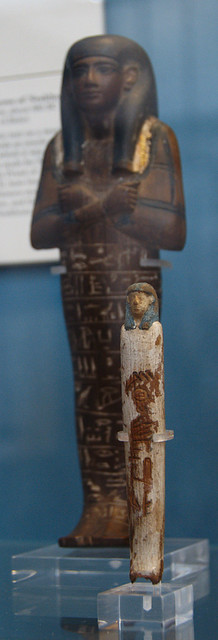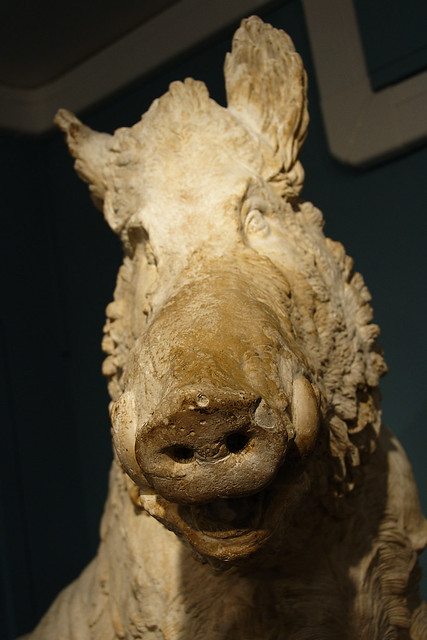This is an index and summary of the things I’ve talked about over the last month. Links for multi-post subjects go to the first post (even if it’s before this month), you can follow the internal navigation links from there. (TV shows without full posts will not be linked, but will be listed.)
Books
Fiction
“Blood and Iron” Elizabeth Bear. Urban fantasy/urban elves, done by Bear – part of Read All the Fiction. Kept.
“Vanished” Kat Richardson. The fourth Harper Blaine book, urban fantasy/PI crossover. Library book.
Total: 2
Non-Fiction
“Plantagenet England 1225-1360” Michael Prestwich. Part of the New Oxford History of England.
Total: 1
Concerts
Blackfield (Koko, Camden 5 February 2014).
Total: 1
Course
Shakespeare’s Hamlet – a review of a course on Future Learn.
Total: 1
Links
Monday Link Salad 24/2/14.
Total: 1
Photos
Far From Home.
Next Generation.
Tangled.
Total: 3
Radio
Cosmic Rays. In Our Time episode about cosmic rays.
Lévi-Strauss. In Our Time episode about the life & work of Claude Lévi-Strauss.
The Making of the Modern Arab World. Four part Radio 4 series about the modern history of the Middle East.
Ordinary Language Philosophy. In Our Time episode about Ordinary Language Philosophy, a school of philosophical thought that was dominant in the middle of the 20th Century.
Total: 4
Talks
“Everyday Life in Ancient Egypt” Frances Boardman. Talk given at the February meeting of the EEG.
Total: 1
Television
Non-Fiction
Baroque! From St Peter’s to St Paul’s – gloriously over the top series about Baroque art and architecture, presented by Waldemar Januszczak.
Bible Hunters – series about the search for early texts of the Bible in Egypt.
Blink: A Horizon Guide to the Senses – programme presented by Kevin Fong about the senses. Not much new footage, instead it made use of the last 40 years of Horizon to pull out illustrative bits and pieces from the archives. Some neat things to see, but in other ways it felt a bit shallow.
Britain’s Most Fragile Treasure – Janina Ramirez programme about the East Window in York Cathedral. How it was made, who made it, how it’s being conserved, and what the various scenes and stories are.
The Coffee Trail with Simon Reeve – one-off programme about coffee growing in Vietnam. Vietnam is the main supplier of coffee for the instant coffee trade, and it’s as exploitative a trade as you’d expect. The regime in Vietnam isn’t particularly nice either.
Easter Island: Mysteries of a Lost World – programme about the history of the native Rapa Nui people, presented by Jago Cooper.
The Great British Year – series about British wildlife and countryside over the whole year. Lots of gorgeous shots of animals, and timelapse sequences of landscapes.
Greek Myths: Tales of Travelling Heroes – programme presented by Robin Lane Fox about the early Greek myths about the origins of their gods. Also looking at the links between the mythological stories and the landscape the Greeks knew, and also the links to Hittite mythology. We both had quite a lot of deja vu watching it, and figured out eventually that we’d watched it before about 3 years ago and had just forgotten (brief post on my livejournal). Interesting & worth watching, even for a second time 🙂
Guilty Pleasures – the deep cultural roots of our modern attitudes to luxury, presented by Michael Scott.
Henry & Anne: The Lovers that Changed History – two part series about Henry VIII and Anne Boleyn, part dramatised documentary presented by Suzanne Lipscomb.
The Joy of the Single – programme about singles, talking to various music industry people. Covered things like the history of the single as a phenomenon, the physical object of a 7″ vinyl single and the sort of emotional impact that various singles had on these people.
Nigel Slater’s Great British Biscuit – a similar programme to Slater’s previous one on sweets (post), part nostalgia, part history of biscuits. Lots of “oh I remember those” moments 🙂
New Secrets of the Terracotta Warriors – Channel 4 one-off programme about the terracotta army found buried near the Emperor Qin’s grave in China. Partly about the history of Qin era China (the first unification of the country in c.200BC, and partly about the techniques currently being used to learn more about the terracotta soldiers. A little shallow.
Pilgrimage with Simon Reeve – a programme about the history of (Christian) pilgrimage, pilgrimage sites and the modern incarnation of it.
Robins of Eden and The Rabbits of Skomer – two rather retro-feeling mini nature documentaries, lasting just 10 minutes each.
The Search for Alfred the Great – programme about the biography of Alfred, the story of what happened to his body after death, and the modern search for his bones.
The Stuarts – a series about the Stuart Kings of England & Scotland, presented by Clare Jackson, and about how they shaped the United Kingdom and how they were shaped by it. Broadcast on the Scottish version of BBC2 only.
Survivors: Nature’s Indestructible Creatures – series presented by Richard Fortey looking at three mass extinction events and showing us modern examples of the species that survived them.
Time Traveller’s Guide to Elizabethan England – this was part of the BBC’s Tudor Season in 2013. It’s a series about life in Elizabethan times from the perspective of the differences between now and then, what you’d need to know if you could travel back there.
Total: 19

